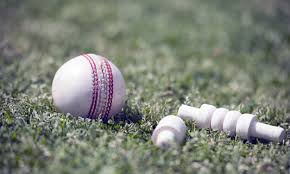There’s no mystery why the U.S. Golf Association chose The Country Club in Brookline, Mass., as the venue for this week’s U.S. Amateur. That’s where Francis Ouimet, an unheralded 20-year-old amateur, won the U.S. Open 100 years ago next month.Somewhat inconveniently, Friday’s amateur action left four players standing, none from the U.S. (two from Australia, one each from England and Canada). But Ouimet’s victory, only the second by an American in America’s own championship, became a legend almost before his final putt—on the 18th hole of a playoff against the two leading British professionals of the day—found the bottom of the cup.
Some people and events in sports have had transformative impact far beyond the action on the field. Jackie Robinson’s first season in baseball. The televised 1958 NFL championship game, in which the Baltimore Colts behind Johnny Unitas beat the New York Giants. That game set pro football on the path to becoming America’s favorite living room sport.
Ouimet’s victory at Brookline similarly introduced golf to the American mass market, in an era before even radio. “Ouimet World’s Golf Champion,” trumpeted the New York Times in one of at least eight stories it ran about the playoff by the next day. “Remarkable Golf Feat,” the sub-headlines scrolled on. “Splendid Display of Nerve…Big Gallery Makes Demonstration at Finish.”
Golf wasn’t even that popular in 1913. The U.S. had only 300,000 to 400,000 players, most of them new because golf itself was still relatively new here. Bobby Jones later recalled that reading about Ouimet’s victory, in Atlanta where he lived, was the first time he’d ever seen the game covered in a newspaper. Within a decade, more than 2 million were playing the game.
Ouimet’s triumph is remebered today, largely from Mark Frost’s masterful retelling in his 2002 book, “The Greatest Game Ever Played.” But it’s striking how quickly the newspapers of the day metamorphosed what was, after all, just a few good rounds by a talented amateur, into a nationally celebrated civic event.
The themes were irresistible. First were the two men Ouimet beat in the playoff, Harry Vardon and Ted Ray. They were on a barnstorming tour of the States, to show the upstart Yanks what real golf looked like. In fact, the U.S. Open had been postponed to September from June to accommodate their schedule, with the assumption that one or the other would win. Vardon, 43 years old, was considered the best golfer in the world. He was a five-time British Open champion (he would later win another) and was said to have won 14 tournaments in a row in Europe. Ray, 36, had won the previous year’s British Open.
To an America still insecure about its place in the world, the triumph of a humble immigrant’s son over golf’s reigning British overlords was magnificent comeuppance. “Dismay in Britain,” the New York Tribune hypothesized, delighting at the mother country’s supposed perturbation. “Ouimet Outclasses Vardon and Ray,” blared the New York Evening Mail.
Class was definitely a theme. Ouimet wasn’t a scion of society, which most Americans rightly associated with golf back in those days. He lived with his parents in a small house across the street from The Country Club (it really was in the country then) and caddied there. His own caddie, Eddie Lowery, was 10 years old and scarcely bigger than the bag. Never mind that Vardon and Ray were also former caddies from humble circumstances. The myth-making machinery tagged Ouimet’s win as the triumph of middle-class Yankee ingenuity over the posh Brits.
Ouimet was the real deal, however: modest, unaffected and highly skilled. “Had a pleasant young man from a good Fifth Avenue family or some stiff and staid professional defeated Vardon and Ray, it is really very doubtful if his victory would have been the wholesale therapeutic for American golf that was Ouimet’s,” writer Herbert Warren Wind pointed out 40 years ago. “Overnight the non-wealthy American lost his antagonism toward golf.”
Maybe not quite, but the American game was lucky to have Ouimet as its first great hero. He stayed an amateur and was actually more proud of his two U.S. Amateur victories—he won in 1914 and 1931—than he was of his Open win. Working variously in sporting goods, investment advising and as an executive for the Boston Bruins and Boston Braves, Ouimet was a six-time captain of the U.S. Walker Cup team and served as secretary of the USGA. The Francis Ouimet Scholarship Fund, started in 1949, last year donated $1.5 million to caddies and other golf-course workers attending college.
Golf has had its share of heroes and landmark figures since. Foremost, of course, was Jones, the consummate gentleman amateur who retired from competitive golf in 1930, at age 28, after winning the Grand Slam. Then came the great professionals, starting with Walter Hagen and Gene Sarazen and continuing through Ben Hogan, Sam Snead, Arnold Palmer, Jack Nicklaus and Tiger Woods. But none of them, with the possible exception of Palmer, who glamorized golf just in time for television, had the transformative impact on the game that Ouimet did.
Could someone these days have a similar impact? It’s no more unthinkable than Ouimet’s victory at Brookline must have seemed in 1913, especially after he foozled his opening drive in the tournament barely 40 yards. The game is more mature now, but there are certainly areas ripe for transformation.
How about a female player, so utterly charismatic and dominant that she inspires generations of women to take up the game? Se-Ri Pak did something like that for South Korea when she won two majors in her rookie 1998 season on the LPGA. Back home, the game exploded. There is no sensible reason recreational golf shouldn’t be 50-50, male and female. Maybe all it would take is a female Ouimet.
Or what if some similarly charismatic and dominant star from a country like China or India won a gold medal when golf returns to the Olympics at the 2016 Games in Rio? That could spark a global growth craze—and help us appreciate Ouimet’s achievement all the more. – ABC News via Yahoo News




